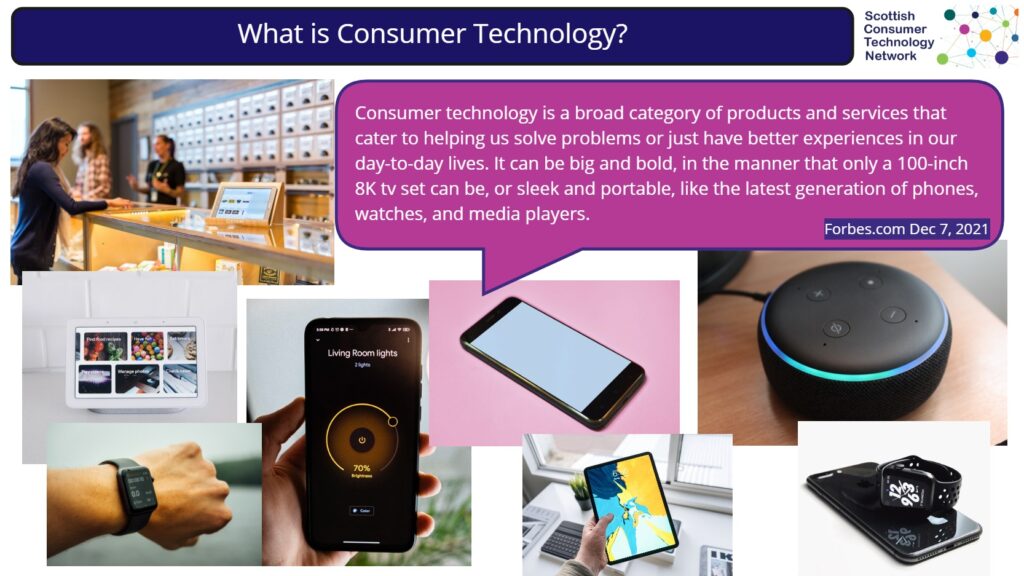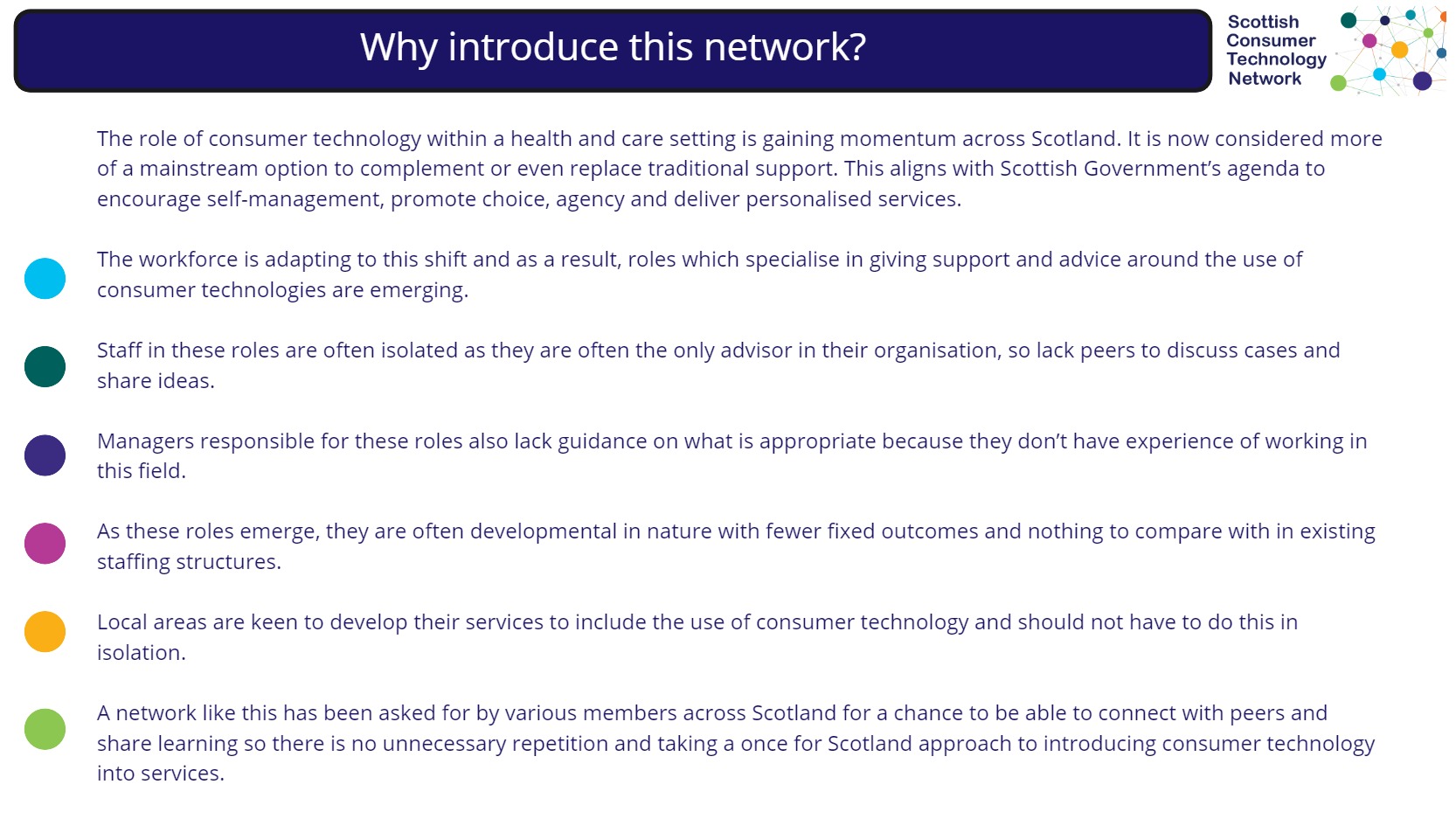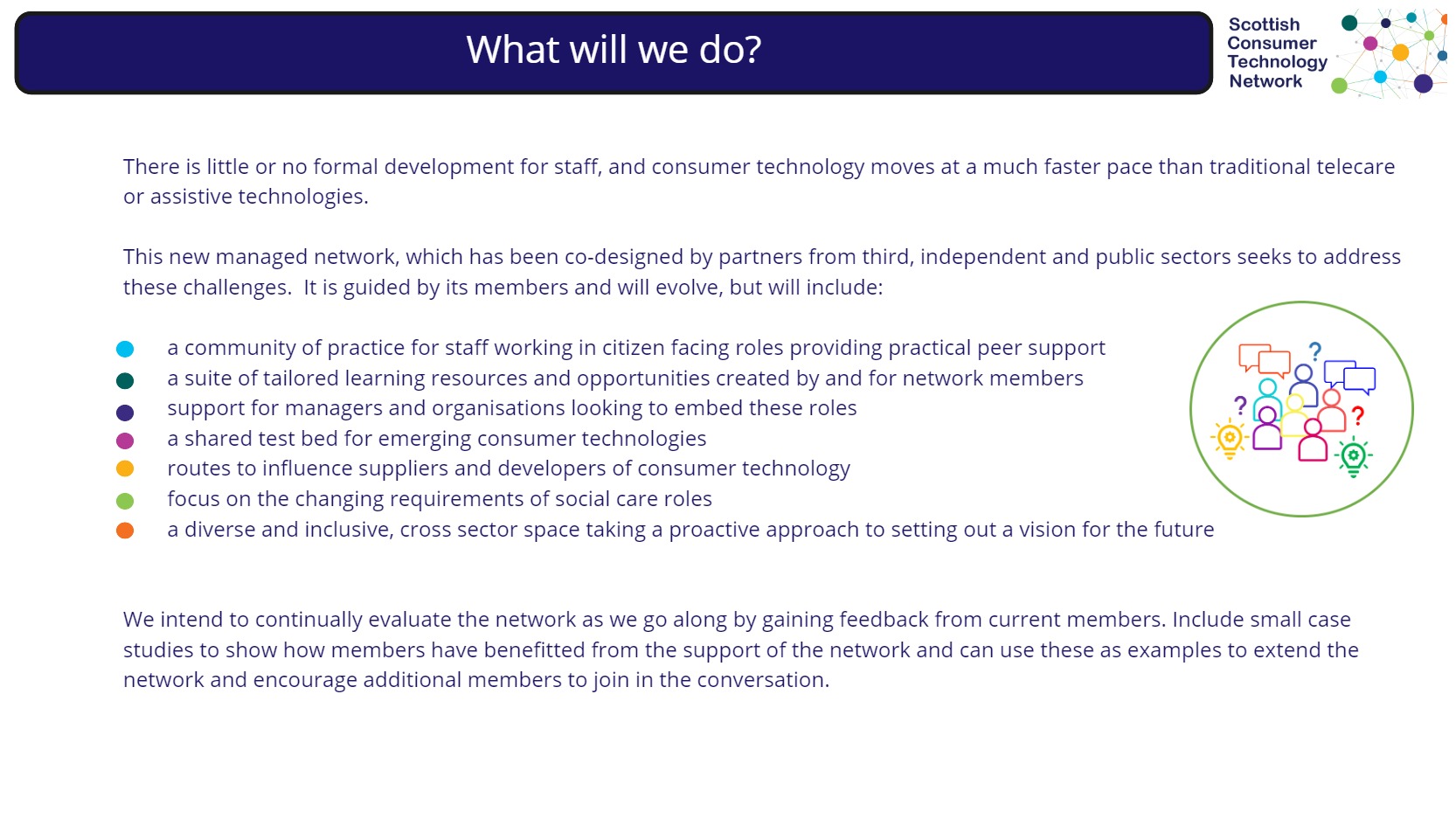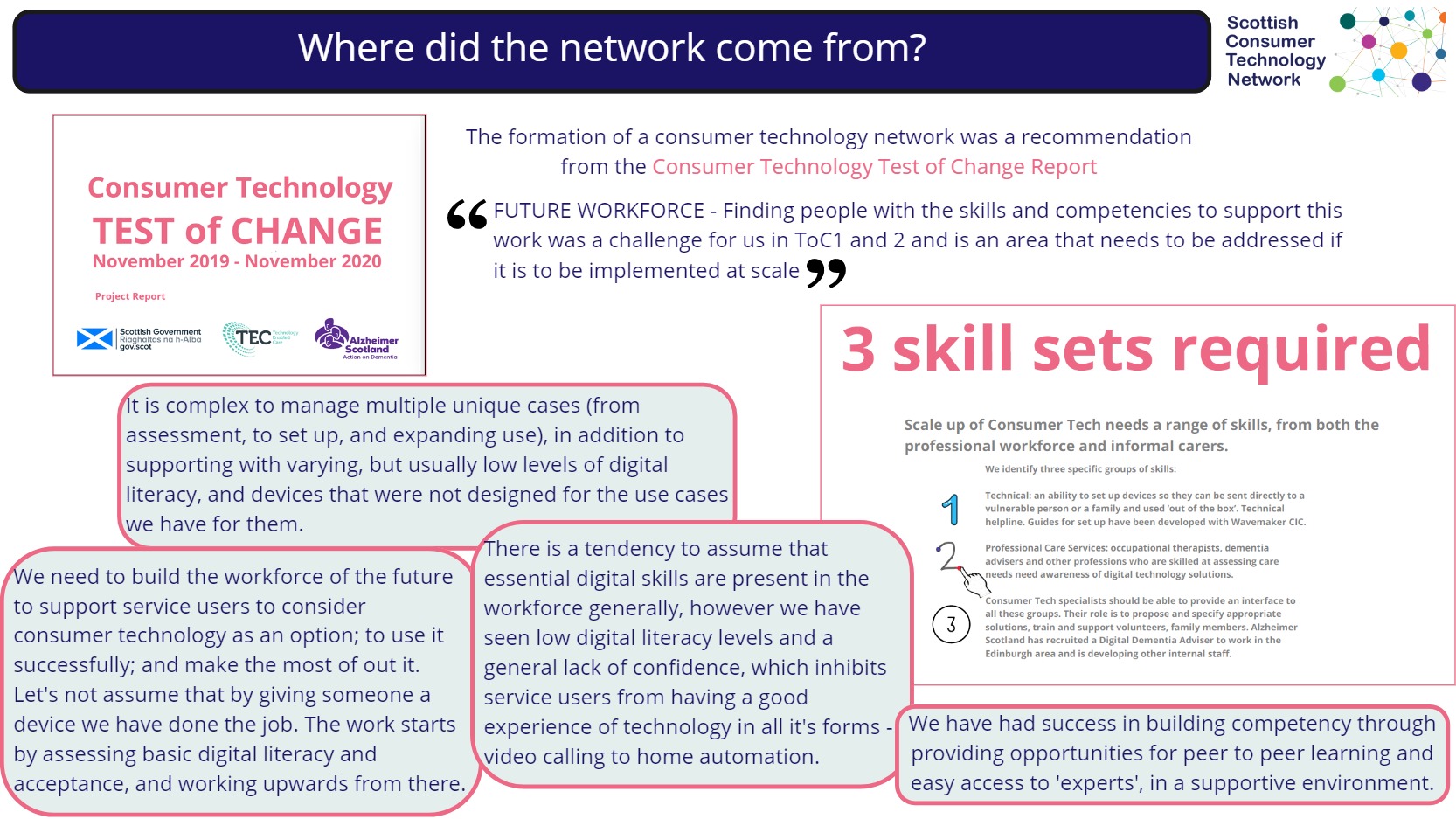
Consumer technology is a broad category of products and services that cater to helping us solve problems or just have better experiences in our day-to-day lives. It can be big and bold, in the manner that only a 100-inch 8K tv set can be, or sleek and portable, like the latest generation of phones, watches, and media players.
Forbes.com Dec 7, 2021

Why Introduce This Network?
The role of consumer technology within a health and care setting is gaining momentum across Scotland. It is now considered more of a mainstream option to complement or even replace traditional support. This aligns with Scottish Government’s agenda to encourage self-management, promote choice, agency and deliver personalised services.
- The workforce is adapting to this shift and as a result, roles which specialise in giving support and advice around the use of consumer technologies are emerging.
Staff in these roles are often isolated as they are often the only advisor in their organisation, so lack peers to discuss cases and share ideas. - Managers responsible for these roles also lack guidance on what is appropriate because they don’t have experience of working in this field.
- As these roles emerge, they are often developmental in nature with fewer fixed outcomes and nothing to compare with in existing staffing structures.
- Local areas are keen to develop their services to include the use of consumer technology and should not have to do this in isolation.
- A network like this has been asked for by various members across Scotland for a chance to be able to connect with peers and share learning so there is no unnecessary repetition and taking a once for Scotland approach to introducing consumer technology into services.

What Will We Do?
There is little or no formal development for staff, and consumer technology moves at a much faster pace than traditional telecare or assistive technologies.
This new managed network, which has been co-designed by partners from third, independent and public sectors seeks to address these challenges. It is guided by its members and will evolve, but will include:
- a community of practice for staff working in citizen facing roles providing practical peer support
- a suite of tailored learning resources and opportunities created by and for network members
- support for managers and organisations looking to embed these roles
- a shared test bed for emerging consumer technologies
- routes to influence suppliers and developers of consumer technology
- focus on the changing requirements of social care roles
- a diverse and inclusive, cross sector space taking a proactive approach to setting out a vision for the future
We intend to continually evaluate the network as we go along by gaining feedback from current members. Include small case studies to show how members have benefitted from the support of the network and can use these as examples to extend the network and encourage additional members to join in the conversation.

Where Did The Network Come From?
The formation of a consumer technology network was a recommendation from the Consumer Technology Test of Change Report
FUTURE WORKFORCE – Finding people with the skills and competencies to support this work was a challenge for us in ToC1 and 2 and is an area that needs to be addressed if it is to be implemented at scale
3 skill sets required
Scale up of Consumer Tech needs a range of skills, from both the professional workforce and informal carers.
We identify three specific groups of skills:
- Technical: an ability to set up devices so they can be sent directly to a vulnerable person or a family and used ‘out of the box’. Technical helpline. Guides for set up have been developed with Wavemaker CIC.
- Professional Care Services: occupational therapists, dementia advisers and other professions who are skilled at assessing care needs need awareness of digital technology solutions.
- Consumer Tech specialists should be able to provide an interface to all these groups. Their role is to propose and specify appropriate solutions, train and support volunteers, family members. Alzheimer Scotland has recruited a Digital Dementia Adviser to work in the Edinburgh area and is developing other internal staff.
It is complex to manage multiple unique cases (from assessment, to set up, and expanding use), in addition to supporting with varying, but usually low levels of digital literacy, and devices that were not designed for the use cases we have for them.
We need to build the workforce of the future to support service users to consider consumer technology as an option; to use it successfully; and make the most of out it.
Let’s not assume that by giving someone a device we have done the job. The work starts by assessing basic digital literacy and acceptance, and working upwards from there.
There is a tendency to assume that essential digital skills are present in the workforce generally, however we have seen low digital literacy levels and a general lack of confidence, which inhibits service users from having a good experience of technology in all it’s forms – video calling to home automation.
We have had success in building competency through providing opportunities for peer to peer learning and easy access to ‘experts’, in a supportive environment.
Our Consumer Technology Test of Change Report is now available (2020, pdf).
Presentation at a TEC Lunchtime Learning Bite in June 22 to introduce what the network is going to be and why it is being formed (8 mins).
